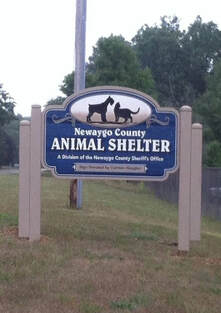 “Animals are such agreeable friends—they ask no questions; they pass no criticisms.” –George Eliot By Kristie Bulger This is not an opinion piece about hunting. It is an opinion piece about the importance of keeping a close eye on your pets, especially this time of year. Coyotes are always a threat to our pets. Small dogs and cats are most at risk but larger dogs are not immune from the threat. The risk increases during mating season, which is February and March. Male coyotes can become more aggressive during this time of year. Additionally, male dogs can be lured by the female coyote's scent and killed by male coyotes when he follows her into the woods. The coyotes are only doing what comes natural to them. When a coyote kills a small dog, they don’t see someone’s pet. They are only feeding themselves and their families. A poodle loose in it’s backyard is an easier meal for the coyote than trying to catch a rabbit, a mouse or a bird. Quite a few people feel that if they hire someone to remove the coyotes in their neighborhood, that they’ll no longer have to worry. On a certain level that sounds reasonable. But coyotes breed once per year with pup counts of from 2 to 6 per litter. The size of the litter is often determined by hunting pressure. More hunting equals more pups. Studies have shown that where coyotes have been extensively hunted, their litters have doubled in size. Also, coyotes have very strong territorial habits. If an adult is removed from its territory, which it has been protecting, there is a good chance from 1 to 3 adults will immediately move in to claim the unprotected area. So it appears that in the end, our best line of defense against coyote predation is to keep our pets safe. Some measures that can be taken are to keep your cats in the house, have your dogs on a 6’ leash when they’re in the yard and to limit your pets time outside at night. Dogs on a cable tie-out or inside a 4’ fence are not safe from coyotes. The little dog that has "never left the yard” is an easy target for a coyote. And people with invisible fencing really need to remember that while it may work to keep your dog inside your yard, it does not work to keep a coyote out of your yard. Most of us live in the woods here in Newaygo County. There are a number of predators out there (and in the air) that think cats and small dogs are a very tasty treat. It’s up to us, the smarter species, to figure out how to live well with our wild neighbors. Here’s a link to our FB page "Friends of Newaygo County Shelter” where you can see all our available animals: https://www.facebook.com/groups/979050632140887 The adoption fee for dogs is $90. This fee includes spay/neuter, deworming, heartworm test, rabies & DHLPP shots, flea & tick treatment and license. The adoption fee for cats is $65 This fee includes spay/neuter, rabies vaccine, feline distemper combo vaccine, FIV/FELV testing, deworming and flea/tick treatment. Newaygo County Animal Shelter 78 N. Webster White Cloud, MI 49349 231-689-1867 Monday - Friday 11-1 Appointments welcome and available upon request Ms. Bulger is a long time volunteer with the Newaygo County Animal Shelter and fierce advocate for our furry friends. Comments are closed.
|
Letter to the Editor PolicyNear North Now welcomes original letters from readers on current topics of general interest. Simply fill out the form below. Letters submissions are limited to 300 words. Archives
July 2024
Categories |
 RSS Feed
RSS Feed